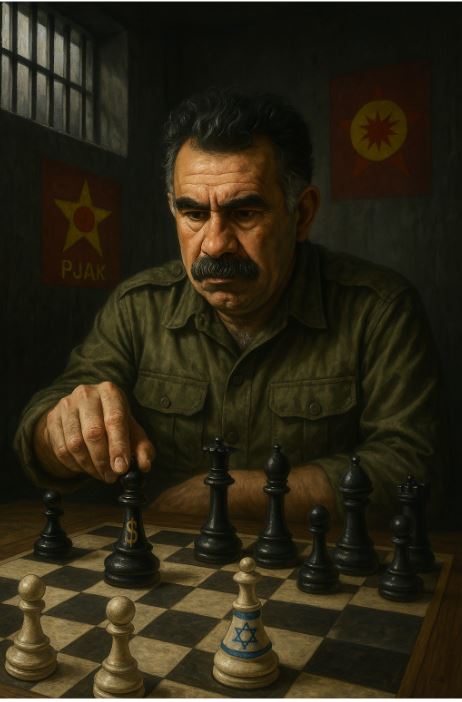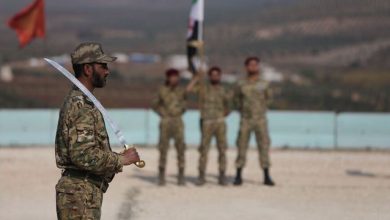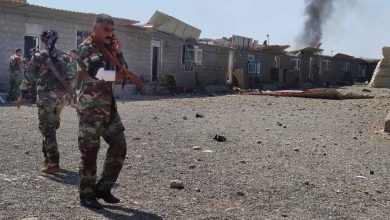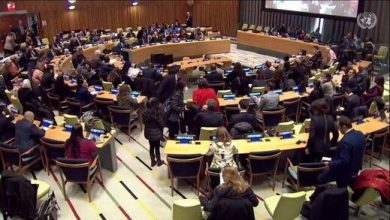Abdullah Öcalan: From Blood and Belief to the Dark Record of a Cult Leader
Abdullah Öcalan, the founder of the Kurdistan Workers’ Party (PKK), is one of the most controversial and influential figures in the contemporary history of the Middle East. Known as the head of a paramilitary group, Öcalan has, over the past few decades, not only impacted the fate of the Kurds but also influenced Turkey’s relations with its ethnic minorities. As a charismatic figure (at a particular time and among Kurds and groups inclined towards armed movements), Öcalan presented himself as a defender of Kurdish rights, attracting the support of many Kurdish youths and activists with humanitarian and justice-seeking slogans. However, behind this mask of humanitarianism lies a bitter and complex reality, involving violent actions and armed conflicts that took shape under his leadership.
Abdullah Öcalan’s role in establishing and expanding an armed movement known as the PKK has led to his being seen as a cult leader. Despite claiming to fight for Kurdish freedom and rights, this movement faces serious accusations, including terrorism, human rights violations, and violence against civilians. In this regard, Öcalan is recognized as a contradictory figure who, while portraying himself as a defender of human rights, resorted to violent and military methods to achieve his political goals. The PKK, as a political and military organization, has faced numerous accusations of terrorism throughout its history. The Turkish government and several other countries, including the United States and the European Union, have designated the PKK as a terrorist group. These accusations stem primarily from the group’s use of armed methods to achieve its political objectives and its attacks against military and civilian targets.
This note, sent to the Iranian Kurdistan Human Rights Watch by a former member of PJAK, aims to critically examine the various dimensions of Abdullah Öcalan’s personality and actions. In this note, the author reviews Öcalan’s dark record and shows how a leader can become a symbol of violence and contradiction while claiming humanitarianism.
The author of this exclusive note for IKHRW is Sirvan Rasouli, who has requested that his real name be published. IKHRW preferred not to publish the name of this former PJAK member to avoid any problems for him. However, Mr. Rasouli stated that the PKK has long since disintegrated, and PJAK, without the PKK, is merely a walking corpse. Mr. Rasouli believes that the PKK, PJAK, and YPG in Syria have been under the control of security organizations for years and will be discarded like a playing card or a used tissue when their usefulness ends. In fact, they are a proxy group that will align with whichever power provides them with more money and weapons. This claim is evidenced by the recent statements of Shahin Jilo, or Mazloum Kobani, who told a BBC correspondent, “Not just Israel, but any power that provides us with services/money, we will serve them.”
The text of the note is as follows:
I am one of the hundreds of members who were once active in the PKK, PJAK, and YPG groups. I spent my youth in the mountains, in ideological training camps, on battlefields, and in camps that not only took away my freedom but also imprisoned my identity, my right to choose, and even my feelings in an invisible prison. Today, from within this bitter experience, I raise my voice in protest against those who wear the mask of humanitarianism but have themselves been the architects of a bloody cult. In statements released from Imrali Prison, Abdullah Öcalan refers to the “Alawite massacre” in Syria as a “Daesh method” and claims that he does not accept it. But does someone who founded a group that, according to dozens of international reports, has abducted, tortured, and sent hundreds of women, children, and adolescents to battlefields over decades have the right to speak of morality and humanity? With a history of issuing orders for hundreds of terrorist operations and creating a closed and morally and ideologically degenerate cult, does Öcalan have the competence to provide advice to other armed groups? Is Abdullah Öcalan not responsible for the deaths of thousands of Kurdish youths and thousands of people in half a century of conflict? Was it not he who made politics in Kurdish society armed and violent? Has he ever apologized, or has he always acted as an all-knowing figure providing advice and policy? Where have his scientific and practical qualifications for leading the Kurds been proven?
In his book “The Black Record of the PKK,” French journalist and researcher Chris Kutschera, citing dozens of eyewitnesses and field sources, clearly writes that the PKK is “not a liberation movement but a closed cult structure with ruthless internal violence.” In this structure, Öcalan was not a political leader but a cult guru whose members were required to regulate even their feelings according to his will. Kutschera writes about the testimonies of those who witnessed internal executions, psychological torture, and brainwashing. In the book “Blood and Belief,” it is stated that Öcalan constantly forced his close associates to abandon their families, faith, human emotions, and natural attachments to become completely dependent on his personal ideology. One victim said, “They told us that our only family is the PKK. Your mother is Comrade Öcalan. Your father is your gun.” In the PKK, women apparently have a special place, but they do not have the right to marry or be mothers! These contradictions only exist in an armed cult. The PKK claims to be fighting for Kurdish interests, but thousands of Kurds have been killed in the war with Turkey due to the recklessness of the PKK leaders. Who is responsible for the deaths of thousands of young people left in the mountains?
In such a system, how does Abdullah Öcalan speak today of “protecting women and children”? This is the same person who, according to Human Rights reports, is directly responsible for the policy of using child soldiers in Iraqi Kurdistan, Syria, and Turkey. The Iranian Kurdistan Human Rights Watch has published documents of dozens of children under the age of 18 who were forcibly placed in the ranks of PJAK and YPG, and some of them never returned. Have PJAK, YPG, SDF, and hundreds of other groups that are considered subsidiaries of the PKK ever been held accountable for their direct responsibility in the deaths of thousands of people? When Öcalan defends the Alawites in a paternal tone, let us not forget that he has mourned thousands of Kurdish, Turkish, Arab, and Persian families over the years. Are these defenses an attempt to cleanse his image? How does he now speak of abandoning the policy of armed struggle? Are he and the PKK accountable for all this bloodshed? Who is responsible for more than four decades of terror, murder, abduction, and conflict? Has nearly half a century of war, terror, abduction, distribution and production of drugs in Europe, the securitization of everything related to the Kurds, and hundreds of other wrong actions solved the Kurdish issue in Turkey? Has war and taking up arms and child soldiery been able to improve the position of the Kurds in Iraq, Iran, and Syria? Is PJAK, as the Iranian branch of the PKK, popular among Iranian Kurds?
Now that some governments, media, and even some affiliated international institutions are trying to portray Kurdish paramilitary forces as peace actors, it is necessary to shout this bitter reality: one cannot speak of peace and human rights while one’s hands are stained with the blood of hundreds of innocent children and women. As a living witness, I emphasize: Abdullah Öcalan and all the leaders of the PKK, PJAK, YPG, and now SDF must be tried in international courts for the crimes they have committed against humanity. What we experienced was not resistance but ideological slavery. What we saw was not an attempt to realize Kurdish rights but living in an armed and terrorist cult that melted everyone into Öcalan, and the answer to any criticism was imprisonment, execution, humiliation, and torture! In the end, we saw that Öcalan was satisfied with playing in the field of Turkish government policies instead of forming a Kurdish state and realized that armed politics has no result. But this understanding also came at the cost of the blood of tens of thousands of people.
Justice is not achieved by awarding medals to criminals. Justice begins when the voices of the victims are heard, and the perpetrators are held accountable. Öcalan, who now sees himself as a peace mentor and a mediator between the Kurds and Turkey, is the same person who issued the orders for terror, paramilitary activity, and presence in the Qandil Mountains.






